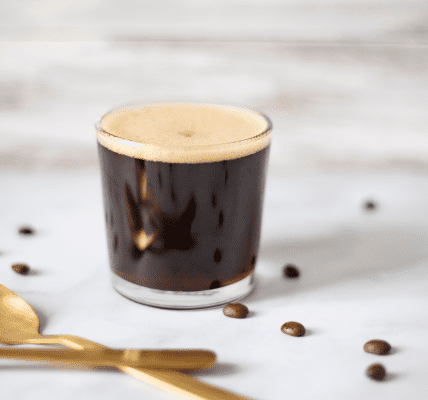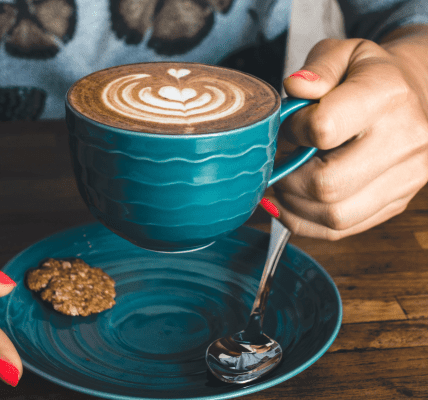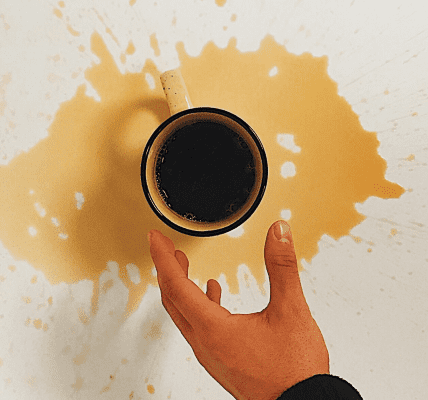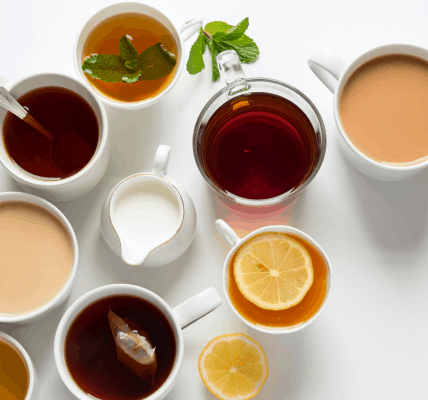
Are you switching from caffeine to no-caffeine? How different decaf tastes is the only thing that bothers us while doing so.
Before we announce our final verdict on whether decaf coffee tastes different from the regular one or not, let’s discuss something very important.
Taste buds are unique to every person due to a unique set of genes. So, though not very drastic, there is a slight variation in sensitivity of taste. That’s why you see some people saying that decaf coffee tastes better than the regular one. While for others, decaf coffee is just a strain on the nerves! Still others will say they cannot distinguish between a decaf coffee and a regular one and that they taste the same.
Does Decaf Coffee Taste Different?
Table of Contents
Let’s just settle the debate: Decaf coffee does not differ very much in taste from the regular caffeinated coffee except for those distinctive sour notes. Some people like to describe its taste more as flat and bland. That said, it creates one hell of a difference between the two because coffee is more loved for its bold and robust assortment of complex flavors.
I acknowledge that we are quite emotional about our daily cup of joe. Just the right amount of milk, sugar, temperature, and coffee is required! Even the slightest toning up or down of the flavor can ruin the mood. How can anyone say that a cup of coffee with a rather bland, weak flavor and an acidic tinge tastes the same as the regular caffeinated one!
So, it turns out the debate has been settled: Yes. Decaf Coffee does taste different. This does not end here. There is still room for a critical discussion on why does it taste different? Do you really need to drink Decaf Coffee despite the taste difference? If yes, is there any way you can make it taste better?
Here’s all you need to know.
Why does Decaf Coffee Taste Different?
Let’s say you belong to that lot of people who feel that decaf coffee and regular coffee are obviously different. What makes both different? What brings that sour, acidic, chemical-y tinge along with that bland, cardboard-y flavor?
There are two main contributing factors:
- Decaffeination
The process of decaffeination is central to decaf coffee, its taste, aroma and texture. Because decaffeination involves soaking coffee beans in warm water, a method called the Swiss Water method. However, some decaf brands use other chemical solvents as well. The main purpose is to rip the coffee beans off their caffeine so that they are only left with no more than 2-3 % caffeine. What makes the taste go off-board is that it’s not just caffeine that is lost. The solutes responsible for the complex flavor profile of coffee are also taken along. That’s how the product ends up with its dull, bland taste.
- Ground Texture
Till now, you see, coffee beans have lost much of their potential already. Since coffee beans are soaked and dried many times to lessen the caffeine levels, we find them somewhat dried up. They even lose their shiny look and look like cardboard. When roasted and ground, you get a fine powder as compared to the coarsely ground coffee. This brings out the bitter taste of coffee, and that too devoid of its strength and solutes.
How do I make my Decaf Coffee Taste Better?
If you still have to avoid caffeine, we can back you up there! It’s healthy to get rid of an addiction. Besides, it can have super health benefits too. But what about that morning punch? Or that evening me-time? Do you have to drink that dishwater coffee?
While decaf coffee is getting popular day by day, coffee brands bring better and better-tasting decaf every day. Till they get to the same bold, addictive flavor of the regular coffee, here’s what you can do to make your decaf taste better:
1. Go for decaf coffee brands that use the water-only decaffeination method. Also, I prefer a medium roast over fine, ground powder decaf.
2. When preparing decaf, use only freshly boiled water. Don’t warm it, then let it cool, and again boil it. Oxygen makes its way out, and you get a flat decaf.
3. Only add enough boiling water to cover the tea. Let it steep for about three minutes. You may even want to cover it up. And after that, you add the remaining boiling water. That’s how you get your decaf to do the best for you!
4. Use high-altitude grown green coffee beans. If you grind your high-quality coffee beans fresh before making decaf, there is nothing better than that!
Does Decaf Coffee Smell and Look Different from Regular Coffee?
Just like the taste, the smell of a decaf gets into a somewhat milder shape after losing its proteins, fat, caffeine, and sugars. You don’t see that much crema or foam over the surface. The bubbles, now weak due to a lack of fat and protein support, also look tiny. Also, they vanish quickly by grouping together in a circle and dissolving.
The differences in smell and visuals can quickly go unnoticed. You need to have an obsession with the regular, caffeinated cup of joe to identify one from the other!
What is the Point of Drinking Decaf Coffee without Caffeine?
Coffee with its distinctive palate-satisfying profile is a beloved beverage all over the world, unarguably our go-to ‘pick-me-up’ potion. Here comes the cup of joe, and there goes the stress, tiredness, fatigue, and low energy. It suddenly picks up the mood as well. All that magic is the work of one master ingredient, and that is caffeine.
Decaf, devoid of the magic ingredient, thus has a milder, mellower flavor and aroma. What is then the point of getting rid of caffeine and then having coffee? That is, what is the point of Decaf Coffee altogether?
We’ll talk about the serious, unavoidable reasons in a while. First, let’s surprise you! Some people on this very planet don’t really like the bitter, pungent taste of coffee. Milder, decaffeinated coffee suits their taste buds better.
What are some serious reasons for choosing decaf over regular coffee despite its sour and bland flavor? The reason is again the magic ingredient, caffeine.
Caffeine is an antioxidant and may have several health benefits for our body’s cardiovascular and digestive systems. But it has drastic addictive properties. Coffee or caffeine dependency is not safe! Consuming too much caffeine can turn it into a health hazard.
1. Caffeine stimulates stomach acid production. This affects people with acid reflux and also damages the skin.
2. It is a potent activator of your sympathetic nervous system. This is why Attention Deficit Hyperactivity Disorder (ADHD) and caffeine have strong relations. Too much caffeine can make you anxious and irritable.
Is Decaffeinated Coffee More Acidic?
One of the common reasons why people shift from caffeine to no-caffeine is stomach acid burn. A condition where the stomach is stimulated to produce more acid than usual, and you feel a burning sensation in your chest. And caffeine really does so! Coffee lovers who drink coffee for breakfast, lunch, supper, and dinner suffer from gastrointestinal disturbances such as acid reflux disease.
Decaffeinated coffee does feel sour and acidic, but it is less acidic than caffeinated coffee. People with gastroesophageal reflux disease (GERD) or acid reflux are advised to use less acid coffee or decaf instead.
Is it Okay to drink Decaf Coffee with Acid Reflux Disease?
Caffeine in coffee is a potent stimulator of stomach acid secretion. This may not be a problem for healthy people. But for people with acid reflux problems, taking caffeine is like an invitation to a terrible acid reflux disorder or simply anxiety disorder.
Decaf sounds like a savior in such a situation since there is not much caffeine in it. Although doctors do suggest replacing caffeinated cups of coffee with a decaf one to such patients, it should be noted that decaf is not 0 percent caffeine either. It does contain a small percentage of caffeine that could worsen acid reflux in severe cases.
Final Words
Decaffeinated coffee or decaf has hence come for those who want to enjoy coffee but also avoid the health hazards of caffeine. Disclaimer: Decaf coffee does taste fake, a bit sour, and chemical-y. Flavor profile is flat. You don’t get to enjoy the same addictive aroma and the I-am-ready-to-drown-in-you crema. But using some simple tips and tricks, you can make your decaf taste a lot better. Besides, there is a silver lining to this cloud, too: try it once, and see if you belong to the group of people who feel that both taste the same.



